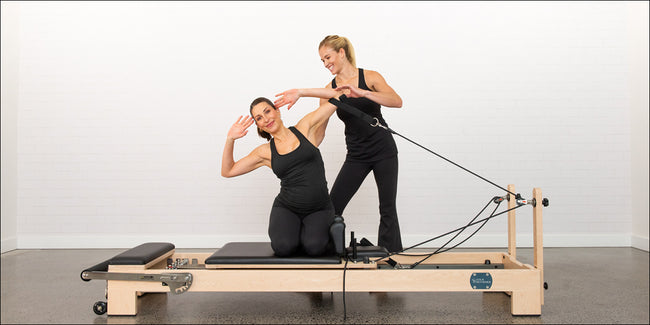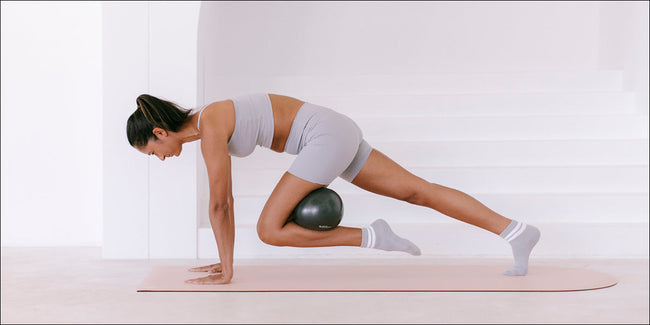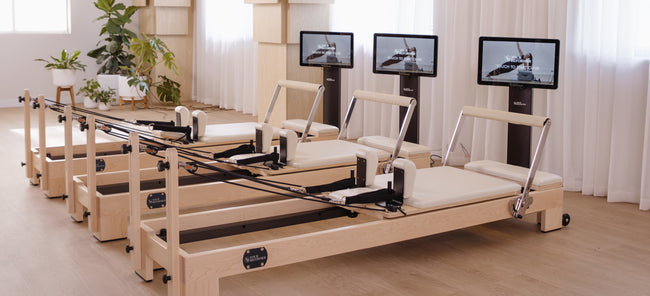We understand the physical benefits that come alongside a regular Pilates practice; stronger muscles, improved co-ordination and balance, and reduction and management of pain are just some of these.
Did you know that Pilates is also an amazing practice to help manage and reduce stress and anxiety? Pilates focuses on mindful movement following a slow controlled breathing pattern, which requires focus and concentration to master. This focus on breath and control means that our brains have to switch to what we are doing and leave external noise at the door.
Better sleep hygiene
Not sleeping impacts both our bodies and our minds negatively. During sleep, our body does most of its best healing, so losing out on sleep means we aren't giving our physical body a chance to repair. This is the same for our mental and cognitive abilities. How we perceive and cope with external factors outside of our control is impacted and so getting a good night's sleep is super important.
Regular Reformer Pilates practice helps to relax and focus the mind and the body which will make it so much easier to fall asleep at the end of the day. Activity improves the quality of sleep you do get and so by having a longer, deeper sleep you'll function better in the day and suffer less from mental and physical fatigue.
Concentration gains
Pilates is a mindful practice, which improves proprioception (the ability to know our body and move freely without actively thinking about it) over time. As Pilates can improve your focus both on and off the reformer, mat and other apparatus, it in turn helps to increase our concentration and our memory.
Anxiety management
Pilates breath and movement is proven to help reduce panic attacks and anxiety. Allowing us the opportunity to switch off the outside world even for a short period, it creates space for a new sense of perspective on a seemingly impossible situation. Practicing Pilates allows a deeper connection to self which can be a stabilizing force.
If you practice Pilates regularly, you're probably already aware of all of this as you'll have experienced some, if not all of what we're discussing here.
If you're new to your Pilates journey, you'll be happy to know that you'll benefit from these mental shifts as well as the more physical ones too through regular and mindful practice.
Mental health support should be accessible to everyone, everywhere across the world, but sadly this isn't always the case. Find out more on the WHO World Mental Health Day pages.








